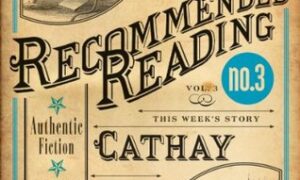 Black Chalk by Christopher J. Yates
Black Chalk by Christopher J. Yates
My rating: 3/5 cats



He would force himself to make friends with one British student at Pitt. Because any friendship was a path and paths always led elsewhere. To more paths and new places. Maybe even a better kind of life. And then, if he could only find a new world, Chad would skip down its lanes. Wherever they took him.
ahhhh, famous last words….
this is one of those cases where i feel i have to remind people that three stars cats from me is not a low rating. three is my broadest range of star cat-distribution, and this one falls on the higher end of the spectrum. there are a few things about it that frustrated the hell out of me, but is a true psychological suspense page-turner, and a hell of a mental ride.
the opening is great – we have a man living in hermitical squalor, trapped in a web of OCD-routines and a mental disturbance so profound he has had to develop physical mnemonic devices to remind himself to even put on clothes. or eat. he has not been outside of his new york apartment in three years beyond going to the bodega for necessary supplies. he receives a troubling phone call that reminds him of something he has willed himself to forget, and we’re off!
from there, the story flips between the narrator in present-day, and his experiences 14 years ago when he was a student at oxford. It’s a sort of The Secret History scenario:
smart, poorly adjusted kids on campus, who think they are better than everyone else, set apart from the herd with a dynamic charismatic boy at the group’s center, a seemingly “less-than-the-others” outsider boy latching on to the group’s chemistry, wanting inclusion, secret meetings and activities that eventually end in tragedy – textbook secret history.
this one offers a twist – a game of psychological manipulation that is devised by the group whose escalating dares and pranks and enforced secrecy are overseen by a shadow society offering a cash prize for the eventual winner.
the mechanics of the game itself are vague; cards, dice, folded pieces of paper in cups, but the consequences are not. not at all.
and they will ultimately rock the very foundation of the group, expose their insecurities, and go very dark.
the thing that secret history-ish books don’t always get is that one of the things that makes sh so good is how slowly it starts, how much of the beginning is character development. and while we get some highly detailed insight into two of the characters, many of the others are pretty stock: comic relief, dreamy damaged girl, beautiful tough girl, socially-challenged genius, bitter homosexual etc.
so while it is a psychological story at its core, it is much more plot-driven than character-driven, which leaves it a little lopsided.
its strength is in its structure. we have several layers of unreliability here. a purported narrator, telling the stories both of his time in college, playing the game, and his life today, which has been completely destroyed by the game’s fallout. within his own written narrative he inserts a “secret” narrative, which was not as cool a device as it could have been, as it was very one-note; focusing on only one particular drive. then, a sweet twist in the narrative adds on a whole other layer of unreliability, which was a very cool move, and made some of the reader head-scratching about the seeming om-narr stuff in the initial chapters make sense. but also makes its own “but, waits…”
still – pretty sweet.
some of my frustrations: the ominous role of the shadow society is strongly hinted at, but never fully explored, and the final “win” of the game is too easy. it has that feel of how vincent d’onofrio can always elicit a confession by just a couple of leading questions to the dramatic swelling of the l&o music – the person in question here breaks too easily, despite what we know about their background. it can’t come down to that. but it does.
and just a personal gripe: there is a sort of byron shout-out:
He passed Bethlehem College and then St. Christopher’s where a famous English poet had kept a bear in his room after the college had banned the keeping of dogs.
which i assume was meant to be byron, unless this is a common occurrence among british poets, but it actually happened at trinity college at cambridge, not oxford. but it’s not the worst ever byron-error in literature.
oh, and a super-minor gripe, but i stumbled over the name “jolyon” every single time. every time.
overall, a really solid read about psychological warfare and group dynamics and a new spin on a type of book i eat up like candy beans. worth the read.







